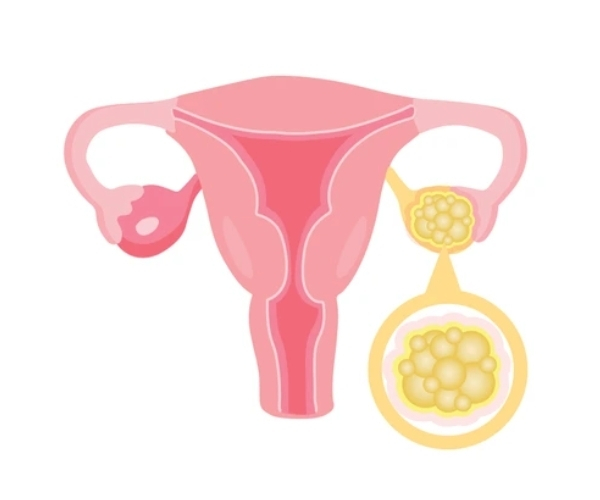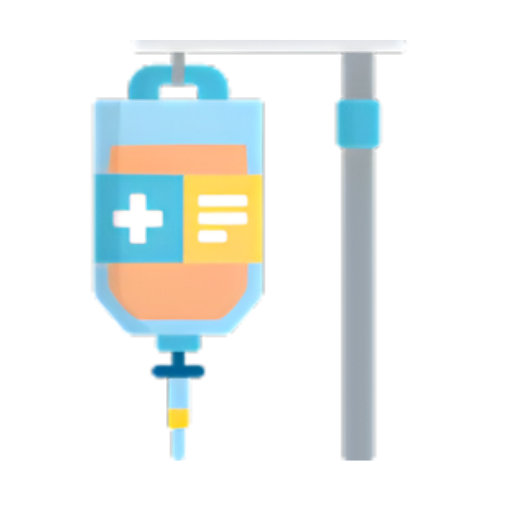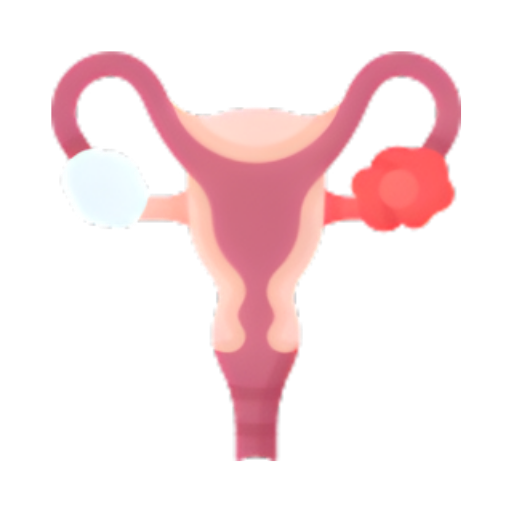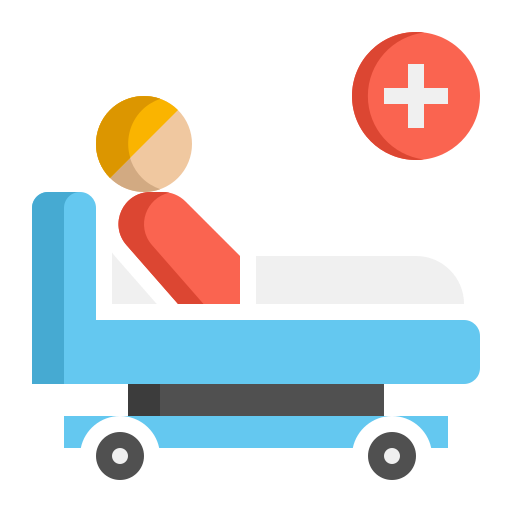Dr. Nitin Singhal
Ovarian Cancer Surgeon in Ahmedabad, India
About Us
Dr Nitin Singhal: Best Ovarian Cancer Surgeon in Ahmedabad
Dr Nitin Singhal is a robotic and HIPEC surgeon with 15+ years of experience and over 5,000 successful major cancer surgeries. He is a pioneer in managing gynaecological cancers, including advanced procedures for ovarian cancer, along with gastrointestinal and urological malignancies, robotic surgery, and HIPEC treatments.
In cancer care, you need more than just technical expertise—you need a physician who listens, understands, and treats you with respect and compassion. Dr Nitin Singhal combines surgical precision with a highly human approach, ensuring every patient feels supported throughout their journey.
For ovarian cancer, you can rely on Dr Nitin Singhal as the best ovarian cancer surgeon in Ahmedabad. With him, you are choosing not just a skilled surgeon but a trusted partner who will guide and care for you through every step of treatment.
What is Ovary Cancer?
Ovary cancer, also called ovarian cancer, is a type of cancer that begins in the ovaries – the female reproductive organs responsible for producing eggs and hormones like oestrogen and progesterone. It develops when abnormal cells in the ovaries grow uncontrollably and form a tumour, which can sometimes spread to nearby tissues or other parts of the body. Since the ovaries are located deep within the pelvis, ovarian cancer often goes unnoticed in the early stages.
Early signs are usually vague and may include bloating, abdominal swelling, pelvic pain, difficulty eating, or frequent urination. As the disease progresses, symptoms may become more noticeable and can interfere with daily life. Diagnosis typically involves imaging tests, blood markers, and sometimes surgery to confirm the stage and type of cancer. Treatment often requires a combination of surgery and therapies such as chemotherapy or targeted therapy. For patients seeking advanced care, options like ovarian cancer surgeon in Ahmedabad are available with experienced specialists who use modern techniques to improve outcomes and recovery.

Happy Clients
Successful Surgeries
Patients Reviews Rate
Years of Experience
Types of Ovary Cancer Surgery

Total Hysterectomy
This involves removing the uterus, both ovaries, and fallopian tubes. It is the most common surgery for advanced ovarian cancer to prevent further spread.

Debulking Surgery
The goal is to remove as much of the cancer as possible if complete removal isn’t possible. It helps improve the effectiveness of chemotherapy after surgery.

Unilateral Salpingo-Oophorectomy
Only one ovary and one fallopian tube are removed, often done in early-stage cancer. It may be preserved as fertility in younger women.

Omentectomy
Your Guide to Ovary Cancer
Ovarian cancer is more prone to older age and after menopause. The possibilities can increase in the case of family history of ovarian or breast cancer, genetic mutation such as BRCA1 or BRCA2, endometriosis, and hormone replacement therapy. There is also increased risk associated with lifestyle factors like obesity, infertility or never being pregnant. Women who have a high genetic predisposition are usually advised to carry out periodic screening or a prophylactic surgery.
Early cancer of the ovary is silent most of the time; however, as the cancer advances, some red flag signs can be noticed. They are continuous bloating, abdominal or pelvic pains, inability to eat or eat very fast, and frequent urination. Fatigue, back pain, a change in menstrual cycles, or an unexplainable loss of weight are other potential symptoms. Due to the fact that these symptoms may resemble the typical digestive or urinary issues, they are not to be overlooked in the event that they continue to exist.
The ovarian cancer therapy usually starts with surgery that is the main essence of managing the cancer. It can include the removal of one or both ovaries, the uterus, the fallopian tubes, omentum and any apparent cancer (so-called debulking surgery). When surgery is done, chemotherapy is usually administered to kill any surviving cells of the cancer.
The more aggressive cases can be treated with the help of targeted therapy and hormonal therapy or immunotherapy, depending on the genetic profile of the cancer. Other women can also undergo minimally invasive or robotic-assisted surgery, which is associated with quicker recovery. In case patients have a need to acquire the specialised care, such services as ovarian cancer surgery in Ahmedabad can be offered with their specialised surgeons and modern equipment that may lead to better outcomes of the treatment.
Benefits of Ovary Cancer Surgery?

Faster Recovery Time

Low Risk of Infection

Lesser Scars

Less Discomfort After Surgery

Shorter Hospital Stay

Speedier Return to Daily Life
Why Choose Dr Nitin Singhal For Ovary Cancer Surgery?
Dr. Nitin Singhal is a very qualified Robotic and HIPEC Cancer Surgeon who has a work experience of 15 years and has completed well more than 5,000 major surgeries successfully. His surgical procedures are of complex nature such as colon, pancreatic, robotic GI, thoracic, gynecology, urology, kidney, bladder, uterus, and ovary cancer surgery.

Expertise
He carries out complicated surgeries of ovarian cancer including hysterectomy, salpingo-oophorectomy, debulking, and omentectomy. He is based on perfect tumor removal and quality of life with a particular expertise in robotic gynecology surgery.
Infrastructure
Dr Nitin Singhal practises in the most advanced cancer centres of Ahmedabad with robotic surgical systems, HIPEC facilities, and state-of-the-art OTs and ICUs. This will guarantee patients quality, advanced and comprehensive treatment of cancer under one roof.
Technology
He uses robotic surgery coupled with minimally invasive procedures as well as cytoreductive surgery to cure ovarian cancer. His combination of chemotherapy and targeted therapies provides him with safer treatments, rapid recovery, and improved long-term results.
Commonly Asked Questions
How serious is ovarian cancer surgery?
Ovarian cancer surgery is a major procedure because it often involves removing the ovaries, fallopian tubes, uterus, and sometimes nearby tissues. The seriousness depends on the stage of cancer, the patient’s overall health, and whether debulking (removal of as much cancer as possible) is required. While it is considered complex, in the hands of an experienced cancer surgeon, risks are minimised. It remains the cornerstone of ovarian cancer treatment and offers the best chance of long-term survival. Proper post-surgery care is equally important for recovery.
What is the recovery time for ovarian cancer?
Recovery time varies depending on whether surgery is open or robotic/minimally invasive. In traditional open surgery, hospital stays may last 5–7 days, with full recovery taking 6–8 weeks. With robotic or laparoscopic techniques, recovery is often faster, typically 2–4 weeks. Patients may experience fatigue, mild pain, and temporary restrictions during this time. Follow-up care and additional treatments like chemotherapy may extend the overall treatment journey.
What is the most successful treatment for ovarian cancer?
The most effective treatment is usually a combination of surgery and chemotherapy. Surgery removes visible cancer, while chemotherapy targets microscopic disease that remains. In some cases, targeted therapies or immunotherapies may be added to improve outcomes. The success depends on early detection, complete tumor removal, and how well the cancer responds to additional therapies. Multidisciplinary care with modern techniques offers the highest survival rates.
Can ovarian cancer come back after ovaries removed?
Yes, ovarian cancer can sometimes recur even after the ovaries are removed. This is because cancer cells may remain in nearby tissues or spread to other areas of the abdomen and pelvis. The risk of recurrence depends on the stage of cancer, the completeness of surgery, and response to treatment. Regular follow-ups with scans and blood tests are essential for early detection of recurrence. Maintenance therapies may also help reduce the chance of the cancer returning.
Get In Touch!
We provide a 24*7 emergency care
If you have any kind of robotic cancer surgery-related medical emergency, visit Sterling Hospital. An expert doctor is always available & treatment will be provided at once.











